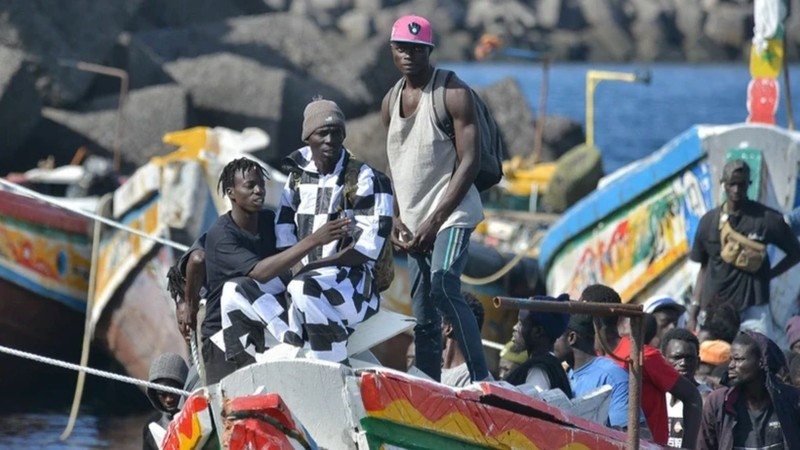Reuters reported that 14 EU member states and three countries in the Schengen area (Norway, Switzerland and Liechtenstein) have signed a petition to the EC, asking the EU to accelerate the repatriation plan for illegal migrants. Germany, France and Italy, which have important positions and voices in the EU, are also among the above countries.
The countries suggested that the EU needs a more coherent policy system with clearer obligations for cooperation from the returnees. The 17 countries also called on the EC to propose a new law on the detention of illegal migrants who pose a threat to national security.
The move comes amid growing support for far-right anti-immigration parties across the continent.
In Germany, which has on many occasions welcomed migrants with open arms, repeated attacks by extremists have become a catalyst for the victory of the far-right Alternative for Germany (AfD) party in the election in the state of Thuringia.
The event marks the first time a far-right party has topped a state election in Germany since World War II and has implications for the German federal election in September 2025. In Austria, the far-right Freedom Party (FPO) also won a historic victory in the recent general election.
These developments show voters’ increasing support for far-right parties in Europe, primarily due to concerns about illegal migration.
Under political pressure from far-right parties and to appease public concerns, some governments have taken a tougher line on migration. Aiming to stem the flow of migrants, Germany has expanded border control with nine neighbouring countries since September 16.
German authorities have set up temporary checkpoints at land border crossings and conducted on-site checks to curb illegal migration and stop Islamist extremists early. In just seven months since the beginning of 2024, the number of illegal immigrants entering Germany has risen to around 50,000.
In France, Prime Minister Michel Barnier announced tougher immigration policies, saying that France will take similar moves as Germany on border controls while still adhering to EU rules. Meanwhile, the ruling right-wing coalition in the Netherlands said it would impose unprecedentedly strict entry rules.
The introduction of border controls by Germany and several other countries has raised concerns that it will deal a serious blow to freedom of movement across internal borders, one of the core principles of the EU. Czech Interior Ministry Spokeswoman Hana Mala warned that such a decision could cause a domino effect across the region.
The policy of tightening border controls also has a negative impact on economic activities, affecting the circulation of goods and causing delays and disruptions in supply chains. The migration issue will be on the agenda of the EU Summit scheduled for October 17 and 18.
After nearly a decade, the migration crisis is still haunting the Old Continent, especially when many regions of the world are still engulfed in war and conflict. European countries are struggling with difficult choices, between international humanitarian responsibility on one side and the responsibility to ensure domestic stability on the other.
The fact that some countries are finding ways to reduce pressure from illegal migration, including through border control, shows that the EU needs to promptly unify its will, resources and policies, instead of letting its member states mind their own business.
















